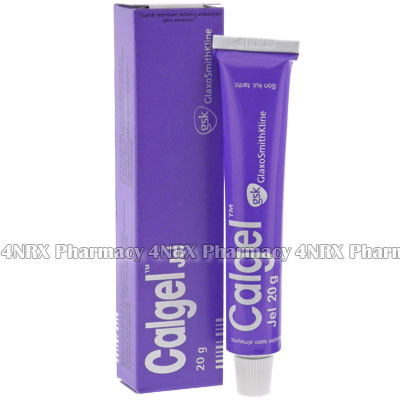 |
Home  Pain Pain  Calgel (Lidocaine HCL/Cetylpyridinium Chloride) Calgel (Lidocaine HCL/Cetylpyridinium Chloride) |
|
|||||||||
|
|
Calgel (Lidocaine HCL/Cetylpyridinium Chloride)
What is Calgel (Lidocaine HCL/Cetylpyridinium Chloride) used for? Calgel (Lidocaine HCL/Cetylpyridinium Chloride) is a topical gel used to treat pain caused by teething in young babies or topical pain. It contains a combination of a mild antiseptic and a mild anesthetic that operate by destroying bacteria and fungus cells while preventing pain signals sent from the gums to reduce the pain of teething. Your physician may also prescribe this medication for the treatment of other unlisted conditions. How should I use Calgel (Lidocaine HCL/Cetylpyridinium Chloride)? Always use Calgel (Lidocaine HCL/Cetylpyridinium Chloride) according to your physician's instructions to get the best results from treatment. The medication may be used up to six times each day, but the best directions will depend on the patient's age, weight health condition, and symptom severity. To administer the gel wash your hands with soap and water to remove dirt or contaminants, apply a small amount of medicine to your fingertip, and gently apply it to the sore areas of the gum or mouth. Thoroughly wash your hands using soap and water after each application to prevent the gel from contacting any areas not being treated including other mucous membranes. Ask your physician any questions you have about the medicine to ensure the correct administration. What are the side effects of Calgel (Lidocaine HCL/Cetylpyridinium Chloride)? Calgel (Lidocaine HCL/Cetylpyridinium Chloride) will not cause side effects in most patients when used correctly, although some may experience:
Immediately contact your physician if any serious or worrying symptoms occur such as vomiting, severe diarrhea, fainting, or an allergic reaction such as hives, skin rashes, swelling, or trouble breathing. These conditions may require reduced application frequency or immediate medical attention in serious or life threatening cases to prevent further health problems from occurring. Please Note Calgel (Lidocaine HCL/Cetylpyridinium Chloride) should not be administered to babies under three months old, that are fructose intolerant, allergic to any of its contents, or that have had a bad reaction to similar treatments in the past. Do not apply the gel to any mucous membranes that are severely damaged. Stop using the medication if the symptoms being treated do not improve or deteriorate. Strictly follow all instructions provided to you by your physician or pharmacist while using Calgel (Lidocaine HCL/Cetylpyridinium Chloride). Optimum and safe dosage can differ based on the patient and the condition being treated. As this medication may be unsafe for certain patients, it is essential you always inform your physician if you are pregnant or breastfeeding, as well as if you have any allergies, other illnesses, or ongoing health conditions, and if you are taking any other form of medication, supplements, or herbal products. Immediately seek emergency medical care if you have an allergic or hypersensitive reaction. Common signs of a reaction include hives, swelling, skin rashes, chest pains, as well as trouble breathing or swallowing. 
|
||||||||||||||||||||||